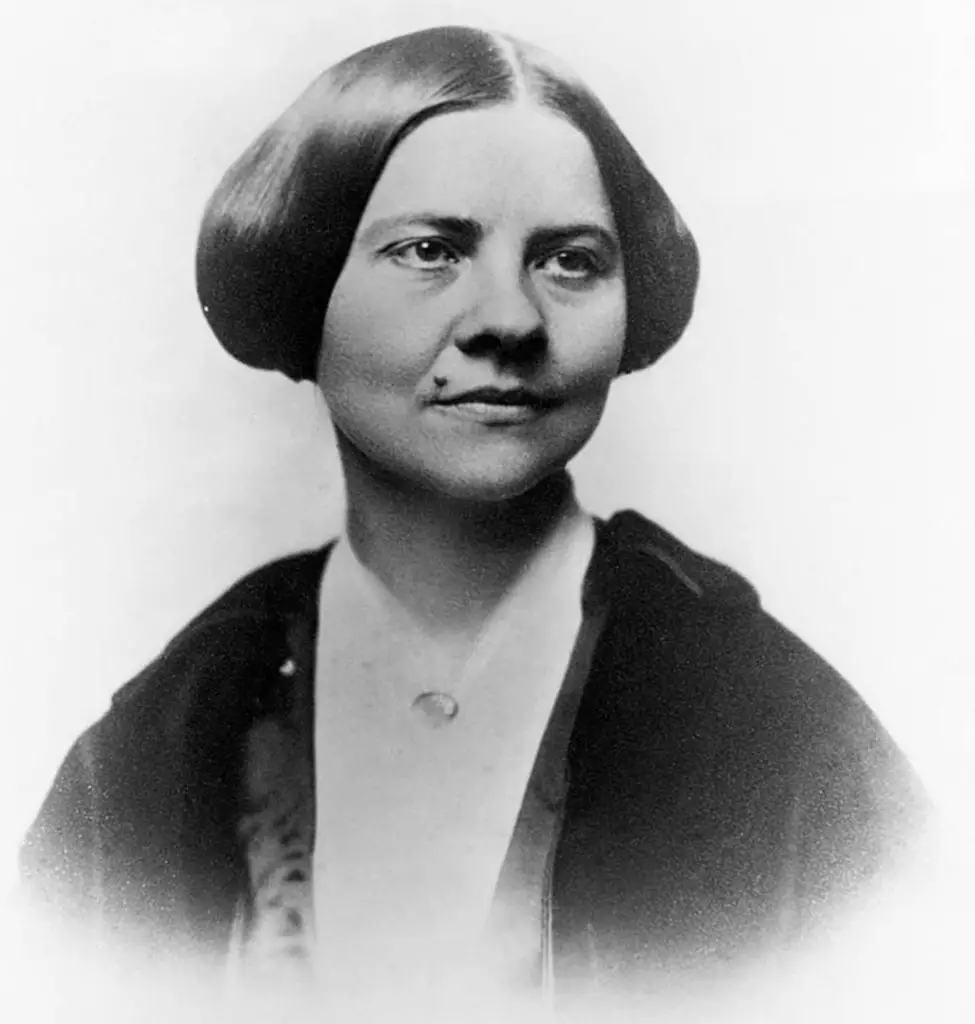A maiden name for a woman is her surname before marriage. It is the last name she had before getting married.
In many cultures, when a woman gets married, she may choose to change her last name to her spouse’s last name, but her maiden name is still legally recognized as part of her identity. This name is often used for legal and official purposes, such as on government documents, employment records, and academic transcripts.
It is an important piece of a woman’s personal history and may hold sentimental value. Understanding a woman’s maiden name can help provide a more complete picture of her identity and background.
What Is A Maiden Name?
A maiden name is the surname that a woman has before she gets married and takes her husband’s last name. It is the name that she is born with and typically uses during her singlehood. The term “maiden name” is commonly used in English-speaking countries and is rooted in historical traditions where a woman’s identity and family lineage were associated with her father’s name.
The definition and explanation of a maiden name can vary across cultures and societies. In some cultures, women may choose to keep their maiden name even after marriage, while in others, it is common for women to adopt their husband’s last name. The decision to keep or change the maiden name is a personal choice and can vary depending on factors such as cultural norms, family traditions, and personal preferences.
The historical significance of the maiden name lies in its connection to a woman’s lineage and heritage. It serves as a way to trace family roots and maintain connections to one’s ancestors. Culturally, the use of a maiden name can also reflect social status, traditions, and societal expectations.
In conclusion, the concept of a maiden name holds historical and cultural significance, representing a woman’s birth name and her connection to her paternal lineage. The decision to keep or change a maiden name is a personal choice that may be influenced by various factors.
Why Do Women Have Maiden Names?
The use of maiden names by women is a long-standing tradition deeply rooted in societal norms. In many cultures, women adopt their husband’s surname upon marriage as a symbol of unity and commitment. This practice has its origins in patriarchal systems where women were considered to belong to their husbands’ families.
This tradition has its pros and cons. On one hand, it allows couples to share a common family name, reinforcing the concept of family unity. On the other hand, this practice can be seen as perpetuating gender inequality, as it is often expected that women change their names and men do not.
| Country | Maiden Name Usage |
|---|---|
| United States | It is common for women to adopt their husbands’ surnames, but they have the legal right to keep their maiden names. |
| Germany | Women are legally required to use their maiden names in official documents, with the option to hyphenate or add their husband’s surname. |
| France | Women traditionally adopt their husbands’ surname, but have the legal right to keep their maiden names as their legal identity. |
This practice of using maiden names is a personal choice influenced by cultural, societal, and legal factors. It is important to respect individuals’ decisions in how they choose to identify themselves.
Maiden Name Vs. Married Name
Many people may wonder about the differences and similarities between a woman’s maiden name and her married name. The maiden name refers to a woman’s family name before she gets married, while the married name is the surname she assumes after marriage.
The decision to keep or change a name after marriage is a personal one and can be influenced by various preferences and considerations. Some women choose to take their partner’s surname as a symbol of unity and create a sense of family. Others may decide to keep their maiden names as a way to maintain their personal identity or professional branding.
Additionally, cultural and traditional factors can come into play when deciding on a name change. In some cultures, it is customary for women to take their husband’s last name, while in others, they may adopt a hyphenated or combined surname.
Ultimately, the choice of whether to change a name or maintain a maiden name is entirely subjective and should be based on the individual’s personal beliefs and circumstances.
Changing Maiden Names
Changing a woman’s maiden name is influenced by several reasons and factors. Many women decide to change their names upon marriage, symbolizing their commitment to their spouse and uniting as a family. Other women may choose to keep their maiden names for professional or personal reasons, establishing a sense of identity and independence. Additionally, cultural and societal norms can play a role in name changes.
When it comes to legal procedures, changing a maiden name typically involves filing a name change petition and providing the necessary documentation. This process varies depending on the jurisdiction, and it is important to consult local regulations and requirements.
Name changes can have implications beyond personal preference and identity. Women need to update their identification documents, such as passports, driver’s licenses, and social security cards, to reflect their new legal name. Moreover, notifying various institutions, including employers, banks, and government agencies, is necessary to avoid any potential discrepancies or complications.
In conclusion, changing a woman’s maiden name is a personal decision influenced by a combination of factors. It is essential to understand the legal procedures and implications involved, ensuring a smooth transition and accurate documentation.
Practical Implications Of Maiden Names
Maiden name is the surname that a woman originally has before she gets married. It is a significant part of a woman’s identity and has practical implications in various aspects of life. In terms of official documents and identification, a woman’s maiden name may need to be included or updated when she gets married. This process involves changing the name on legal documents such as passports, driver’s licenses, and social security cards.
However, maintaining a maiden name also presents challenges and benefits in professional and personal life. Professionally, a woman may choose to continue using her maiden name for brand recognition, especially if she has built a reputation in her field. On the other hand, using a married name can be advantageous for personal and family reasons, creating a sense of unity.
In conclusion, the practical implications of a woman’s maiden name depend on various factors, including cultural norms, personal preferences, and legal requirements. It is important for individuals to consider the implications and make informed decisions when deciding whether to keep or change their name after marriage.
Maiden Names In Different Cultures
Maiden names, also known as birth names or née names, can hold significant cultural importance depending on the traditions and naming conventions of different cultures.
In many Western cultures, it is customary for a woman to take the last name of her husband upon marriage. However, this practice is not universal.
In some cultures, women do not change their last name at all, maintaining their maiden name throughout their lives. This can be seen in countries like Spain, Brazil, and Argentina.
In other cultures, women may keep their maiden name as a middle name upon marriage. This is common in countries like France and the Netherlands.
Meanwhile, in some Asian cultures, women may adopt their husband’s last name upon marriage, but maintain their maiden name as a middle name.
These diverse practices surrounding maiden names highlight the rich cultural differences and traditions around the world.
Retaining Maiden Names
In today’s society, many women are choosing to retain their maiden names after marriage. This decision is often fueled by personal choices and motivations. Some women feel a deep attachment to their maiden names and see it as a part of their identity. They may have established professional careers under their maiden names and wish to maintain that recognition. Others may simply prefer the sound or cultural significance of their maiden name.
There are several advantages to keeping a maiden name. It allows women to maintain their individuality and independence in a society that traditionally expects them to take their husband’s name. It also avoids the hassle of changing legal documents, social security cards, and professional licenses.
However, there are also disadvantages to retaining a maiden name. It can sometimes cause confusion or complications in certain situations, such as when using different last names for family members. It may also lead to societal judgment or criticism, as some people still hold traditional views on name changes.
Feminism And Maiden Names
Feminism and its relationship with women’s maiden names has been a topic of exploration from various perspectives. From a feminist standpoint, the choice of whether to retain or change one’s maiden name after marriage reflects larger societal and cultural implications. It is a personal decision that challenges traditional gender roles and can be seen as a statement of autonomy and identity. Some argue that taking on a spouse’s name perpetuates patriarchal norms and erases a woman’s individuality. On the other hand, others believe that the decision to change one’s name can also be an empowering choice. Feminist perspectives on maiden names highlight the complexities surrounding gender equality and personal agency within relationships. Ultimately, each woman’s decision regarding her maiden name is deeply personal and influenced by a multitude of factors, including cultural traditions, familial expectations, and personal beliefs.
Children And Maiden Names
When it comes to children and their maiden names, there are various naming practices to consider. Some parents choose to give their children the mother’s maiden name as a middle name, as a way to honor both sides of the family. This can help maintain a connection to the woman’s heritage while still incorporating the father’s surname as the child’s last name. Other families may decide to hyphenate the child’s last name, combining both the mother’s maiden name and the father’s surname as a way to symbolize unity.
Moreover, some parents may opt to use the mother’s maiden name as the child’s last name, especially if there are concerns about a father’s involvement or if the mother has a strong connection to her family name. It is important to note that naming practices can vary greatly depending on cultural traditions, personal preferences, and legal considerations. Ultimately, the decision regarding children’s maiden names lies with the parents who should consider their own values, family dynamics, and future implications.

Credit: asia.nikkei.com
Frequently Asked Questions On What Is Maiden Name For Woman
What Is A Maiden Name?
A maiden name refers to a woman’s surname before she got married. It is the last name given to her at birth and is typically changed to her spouse’s surname after marriage.
Why Do Women Have Maiden Names?
Women have maiden names to preserve their familial identity and lineage. It allows them to maintain a connection to their ancestors and roots, even after marriage.
Is It Mandatory For Women To Change Their Maiden Names After Marriage?
No, it is not mandatory for women to change their maiden names after marriage. It is a personal choice, and some women choose to keep their maiden names for various reasons, such as professional identity or cultural significance.
What Are The Alternatives To Changing A Maiden Name After Marriage?
There are multiple alternatives to changing a maiden name after marriage. Some options include hyphenating the surnames of both partners, combining surnames, or creating a brand new surname altogether that holds significance to the couple.
Conclusion
To sum up, understanding the concept of a maiden name is vital for women as it reflects their identity before marriage. It allows them to embrace their heritage and maintain connections with their family roots. With its historical significance and cultural relevance, the maiden name holds a special place in a woman’s life.
By knowing and acknowledging its importance, we can celebrate the diverse stories and backgrounds that shape individuals’ identities.







